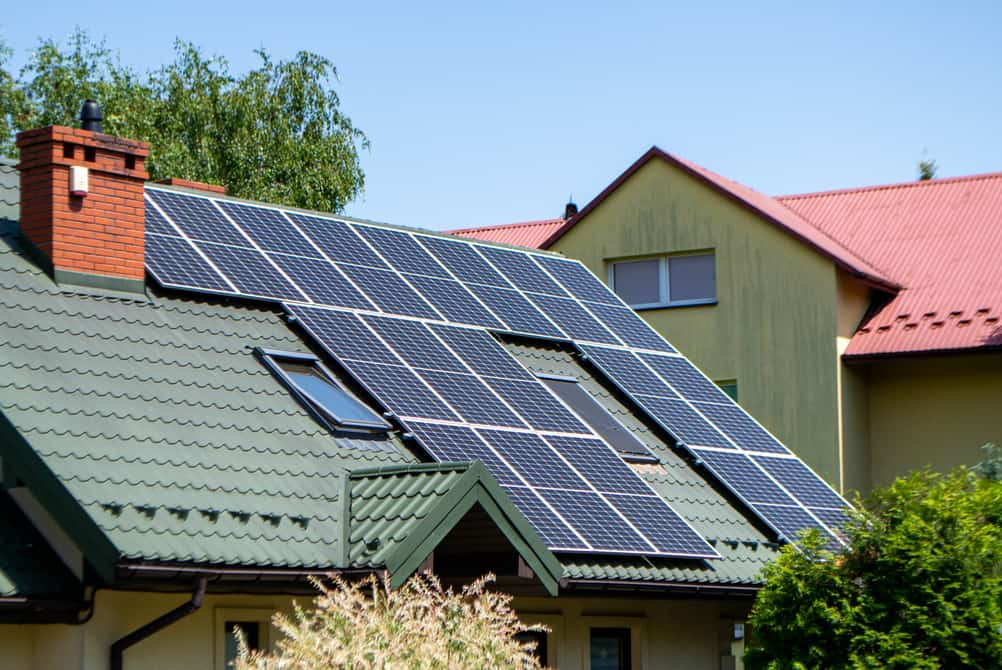As the world shifts towards sustainable energy solutions, solar heating panels have become increasingly popular among homeowners. Beyond their environmental benefits and potential for energy cost savings, these installations are also making a significant impact on property values. This comprehensive analysis explores how solar heating panels affect home values and what factors contribute to this trend.
Research Findings on Solar Panels and Property Values
Several studies have shed light on the positive correlation between solar panel installations and increased property values. The Zillow study, one of the most comprehensive analyses in this field, found that homes with solar panels sell for an average of 4.1% more than comparable homes without solar installations. This translates to a potential increase of up to $6,000 per kilowatt of solar power installed.
For homeowners considering solar installations, the potential increase in property value provides an additional incentive beyond energy savings and environmental benefits. As we move towards a more sustainable future, homes equipped with solar heating panels are likely to become increasingly desirable in the real estate market, making solar not just an eco-friendly choice, but a smart financial investment as well.
The National Renewable Energy Laboratory (NREL) conducted a separate study that approached the value increase from a different angle. Their research suggests that for every $1 saved on energy bills due to solar panels, home values increase by $20. This finding underscores the long-term financial benefits of solar installations beyond just immediate energy savings.
Furthermore, a study by SolarReviews reported an even more significant impact, with solar panels contributing to a 6.8% increase in home value on average. These consistent findings across multiple studies provide strong evidence that solar heating panels can indeed boost property values substantially.
Factors Influencing the Value Increase
While the overall trend is positive, the extent to which solar panels increase property values can vary based on several factors:
- Location and local energy costs: Areas with higher electricity rates tend to see a more significant value increase from solar installations, as the potential for savings is greater.
- Size and efficiency of the solar system: Larger, more efficient systems generally contribute to a higher value increase, as they offer greater energy independence and savings potential.
- Age and condition of the installation: Newer systems with the latest technology tend to be more valuable than older installations that may require maintenance or upgrades soon.
- Local real estate market trends: In markets where energy efficiency and sustainability are highly valued, solar panels may contribute more significantly to property values.
For homeowners looking to maximize the value of their solar investment, our guide on mastering solar heating panels for homeowners offers valuable insights and tips.
Regional Variations in Value Increase
The impact of solar panels on property values is not uniform across all regions. Some states, particularly those with high electricity costs and strong solar incentives, see more substantial value increases. For example, New Jersey, Pennsylvania, and North Carolina are among the top states where solar adds the most value to homes.
Factors contributing to these regional differences include:
- State-specific solar incentives and rebates
- Local climate and solar potential
- Community attitudes towards renewable energy
- Grid electricity costs
Economic Benefits for Homeowners
The positive impact on property values is just one of the economic benefits that solar heating panels offer homeowners. Other advantages include:
- Reduced energy costs: Solar panels can significantly lower monthly electricity bills, providing immediate financial benefits.
- Potential for selling excess energy: In areas with net metering policies, homeowners can sell excess energy back to the grid, further offsetting their energy costs.
- Long-term savings and return on investment: Over time, the energy savings and potential increase in property value can outweigh the initial installation costs.
For a detailed analysis of the financial advantages, our article on the economic benefits of solar heating panels for residential use provides in-depth insights.
Considerations for Potential Buyers
For potential home buyers, properties with solar heating panels offer several attractive features:
- Energy independence: The ability to generate one’s own power is increasingly valued in an era of rising energy costs and grid instability.
- Environmental consciousness: Many buyers are willing to pay a premium for homes with eco-friendly features, reflecting growing environmental awareness.
- Potential maintenance and replacement costs: While solar panels generally have long lifespans, buyers should consider potential future maintenance or replacement costs when evaluating a property with existing solar installations.
Challenges and Potential Drawbacks
While the benefits are significant, there are some challenges to consider:
- Initial installation costs: The upfront investment for solar panel installation can be substantial, although long-term savings often justify the cost.
- Aesthetic concerns: Some buyers may have reservations about the appearance of solar panels, particularly on older or historic homes.
- Impact on older homes: Installing solar panels on older structures may require additional modifications or reinforcements, potentially increasing costs.
Future Trends
The future looks bright for solar heating panels and their impact on property values. With projected growth in solar adoption, continued technological advancements, and increasing awareness of environmental issues, the value added by solar installations is likely to grow.
As solar technology evolves, we can expect to see more efficient and aesthetically pleasing panels, potentially further boosting their positive impact on property values. Additionally, as more data becomes available on the long-term performance and durability of solar installations, their perceived value in the real estate market is likely to solidify.

Conclusion
The evidence is clear: solar heating panels can significantly increase property values, offering homeowners both immediate energy savings and long-term financial benefits. While the extent of the value increase may vary based on factors such as location, system size, and local market conditions, the overall trend is overwhelmingly positive.
FAQS
How much can solar panels increase a home’s value?
According to research by Zillow, homes with solar panels typically sell for about 4% more than comparable homes without solar:
- This can translate to a significant boost in property value, depending on the home’s location and price range
- The National Renewable Energy Laboratory estimates that every dollar saved on energy bills can increase home value by $20
- So, if solar panels save a homeowner $1,000 per year on electricity costs, the home’s value could rise by around $20,
What factors influence how much value solar panels add to a property?
Several key factors impact the value that solar panels can add to a home:
- Location: Solar panels tend to offer a higher value boost in areas with abundant sunshine and high electricity rates
- System age and condition: Newer, well-maintained solar panel systems generally add more value than older or poorly maintained ones
- System ownership: Owned solar panel systems typically add more value than leased ones, as leased systems may be seen as a liability by potential buyers
- Local solar incentives and policies: Areas with favorable solar rebates, tax credits, and net metering can see a greater value increase from solar panels
How can solar incentives and rebates help offset the cost of installing solar panels?
There are various financial incentives available to help homeowners save money on solar panel installations:
- The federal solar tax credit allows homeowners to deduct 26% of the cost of installing solar panels from their federal taxes
- Many states, cities, and utilities offer additional rebates and incentives for going solar, which can significantly reduce the upfront expense
- These incentives not only make solar more affordable but also contribute to the overall value that solar panels can add to a property
What is net metering, and how does it benefit solar panel owners?
Net metering is a policy that allows homeowners to receive credit for excess electricity their solar panels generate:
- When solar panels produce more energy than a home uses, the surplus is sent back to the power grid
- The homeowner’s utility meter runs backward, and they receive a credit on their electricity bill for the excess energy
- Net metering helps solar panel owners maximize their energy savings and recoup their investment faster, which can contribute to higher property values
How do solar panels provide energy independence and peace of mind?
Installing solar panels can give homeowners greater control over their energy supply and costs:
- With solar panels, homeowners can generate their own clean electricity and reduce reliance on the power grid
- This energy independence can provide peace of mind during power outages or emergencies, as solar panels can continue to supply electricity
- The ability to produce one’s own energy and have a backup power source can be highly appealing to potential home buyers, further boosting property value

Leave a Reply